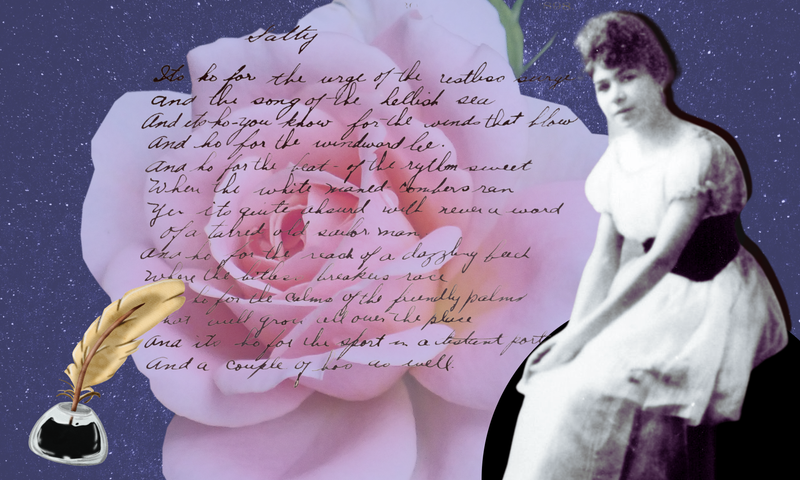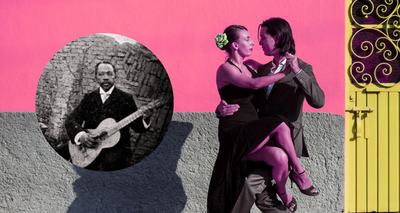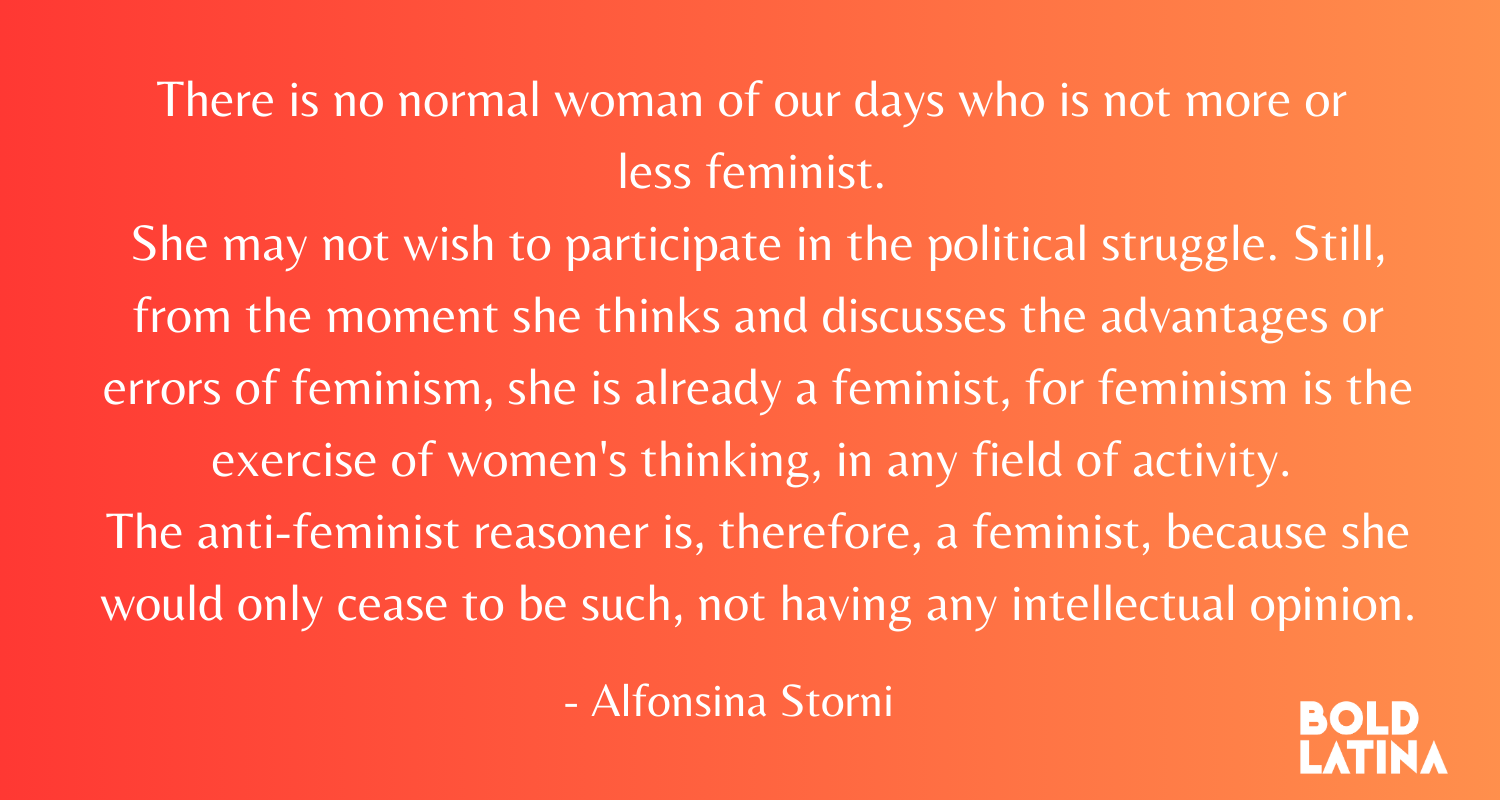
The previous quote was written in 1919, no less. Its fearless author, who wielded her pen in one of the most distant countries in South America, is Alfonsina Storni one of the most influential Latin American literary figures of the 20th century. In this article, we’ll celebrate this Latina poet and journalist by learning how her writing challenged traditional expectations of femininity and advocated for women’s rights in a world ruled by men.
Early Life and the Beginning of a Literary Career
Alfonsina Storni was actually born in Switzerland, in 1892, but her family relocated to San Juan, Argentina when she was just a child. Like many immigrant families at the time, she started working at an early age to help support her family—she left school at age ten and started waiting tables and washing dishes. Her first poems appeared when she turned twelve, which coincided with the gloomy death of her brother-in-law and her father’s troubling alcoholism.
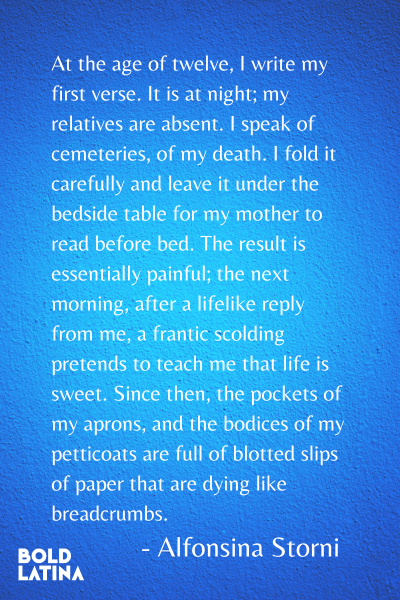
In 1909, Alfonsina left her mother's home to finish her studies and enrolled in a rural teacher’s career despite not having a primary school certificate. In 1911 she moved to Buenos Aires, taking with her few belongings, and had her son Alejandro a year later, with no known father. Her passion for writing emerged early: in 1913 she made some collaborations in the magazine Caras y Caretas and landed a writing job (she was the only woman applying, had to strongly insist to be evaluated, and was finally hired, but for half the salary).
Then, in 1916, she published her first poetry collection, La inquietud del rosal (“The Restlessness of the Rosebush”), which marked the beginning of her career as a poet. The collection already hinted at the feminist themes like love, and desire, which would then define much of her later work.
A Feminist Journalist Who Challenged the Status Quo
Storni’s literary career unfolded in Argentina’s capital, a city that, at the time, was deeply entrenched in rigid gender roles. Women were expected to stay within the domestic sphere, while men dominated public life. In fact, because women had to confine themselves to their homes and families, they ended up cultivating private genres like letters and diaries while journalism and literature were largely male-dominated fields. However, Storni broke through these barriers, using irony, satire, and a sharp feminist critique to make her voice heard.
As a journalist, she was in charge of the sections called “Feminidades” and “Vida Femenina” in La Nota magazine, and later of “Bocetos Femeninos” in the newspaper La Nación. But while these spaces were traditionally reserved for reinforcing gender norms, Storni subverted them by exposing the contradictions of femininity and criticizing the double standards imposed on women. She even chose to sign under the male pseudonym Tao Lao to further subvert these given truths.
How Alfonsina Storni Redefined Womanhood in Poetry
While her journalistic work confronted social conventions, Storni’s poetry provided an even deeper exploration of gender, love, and power dynamics. In “Tú me quieres blanca” (You want me white), one of her most famous poems, she denounces the hypocrisy of men who demand purity and submission from women while indulging in their own freedoms.
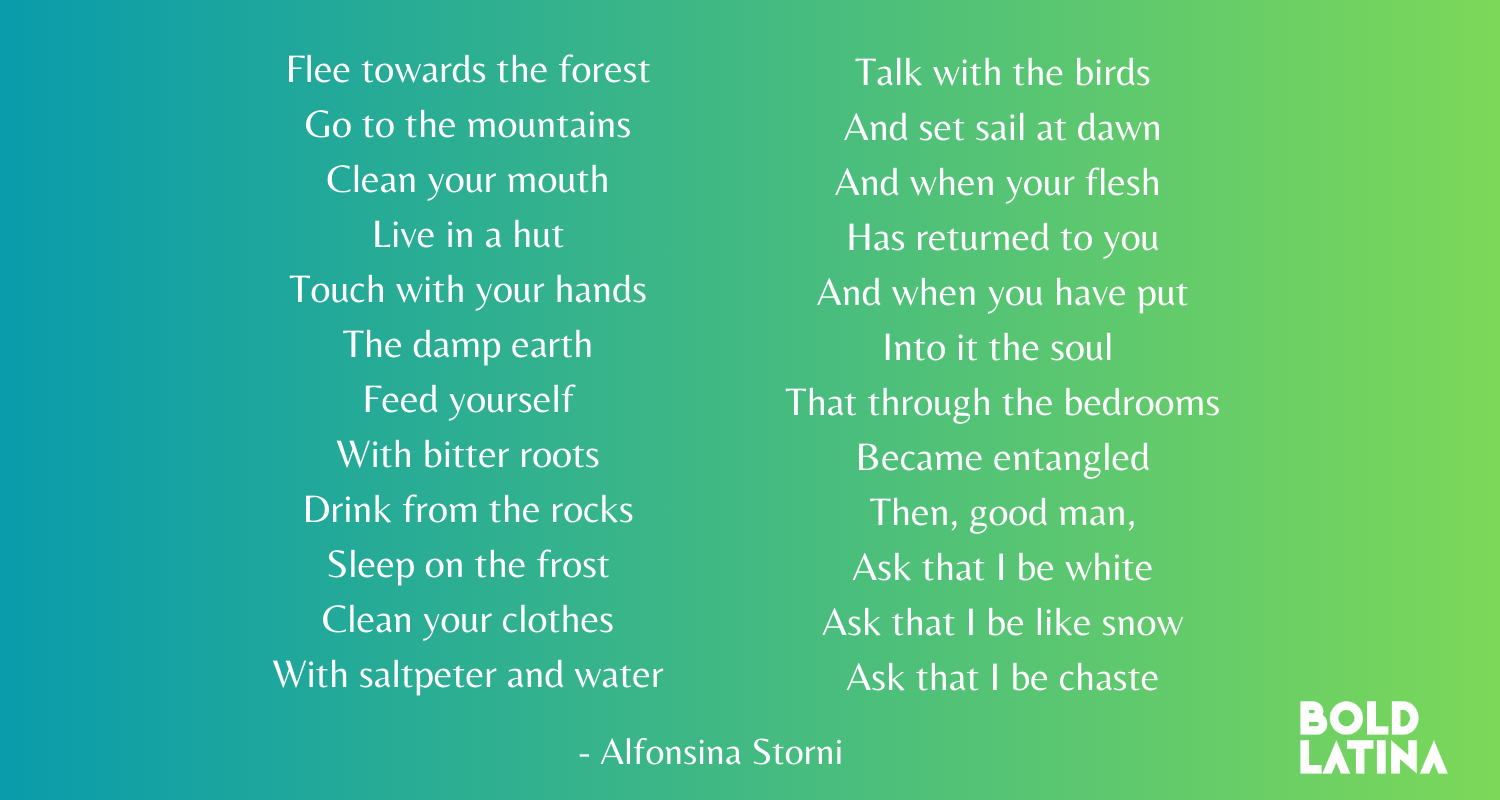
The poem dismantles the ideal of the chaste, obedient woman, a theme that remains relevant as Latinas today continue to challenge restrictive gender roles. Her poetry also ventured into themes of sexuality and desire, which were considered scandalous at the time. Storni did not shy away from portraying women as passionate and autonomous beings. This defiance of societal expectations made her a controversial figure, but also an icon of female empowerment.
The Tragic End of a Literary Icon - Alfonsina Storni
In 1938, battling depression and illness, Storni tragically ended her life by walking into the sea at the city of Mar del Plata. Her final poem, “Voy a dormir” (I Am Going to Sleep), sent to the newspaper La Nación before her death, reads like a farewell letter, filled with imagery of rest and surrender. The poem’s melancholic yet peaceful tone reflects her exhaustion after years of struggle.
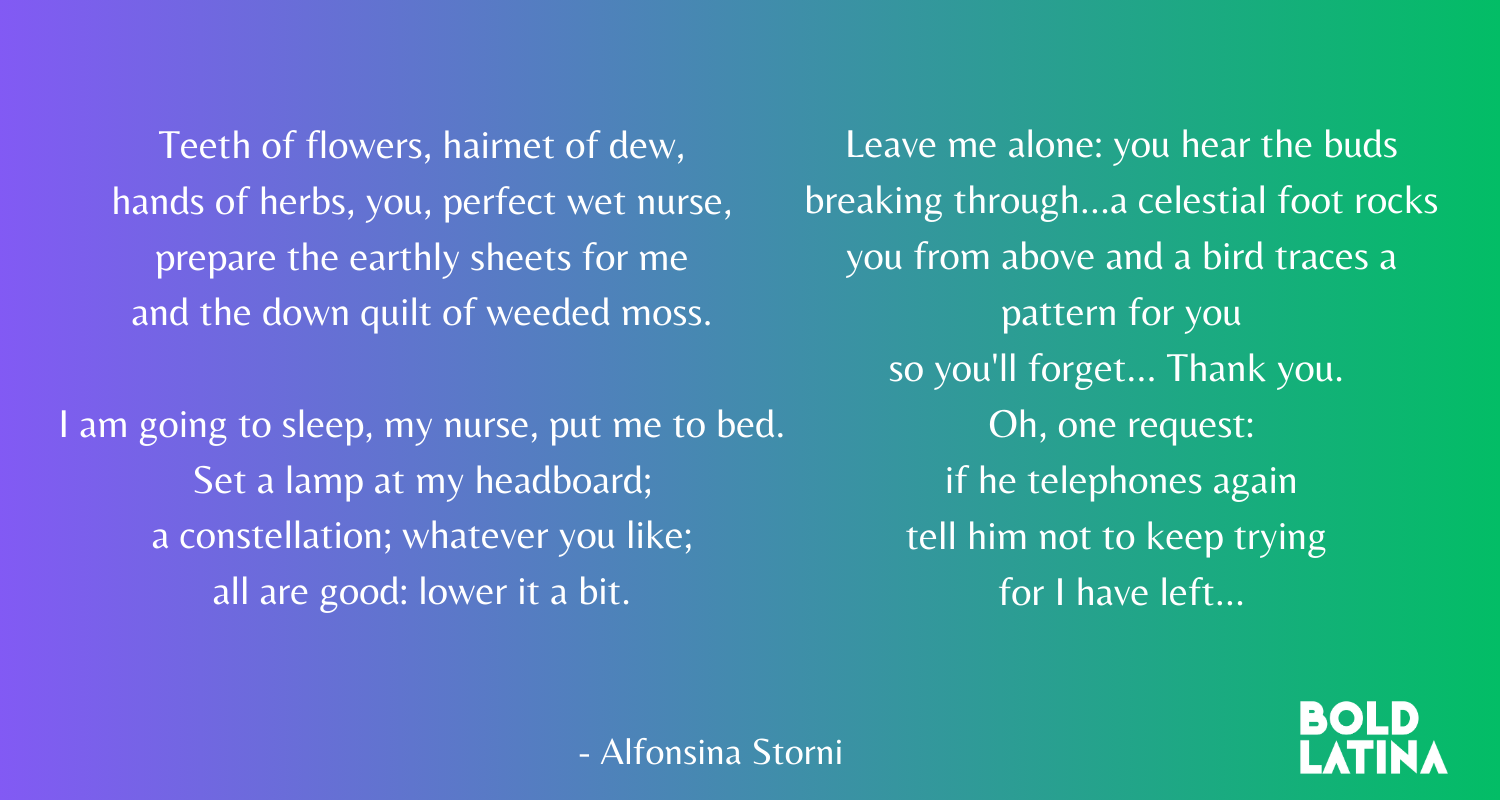
Her death inspired one of the most famous Argentine folk songs, “Alfonsina y el mar”, written by Ariel Ramírez and Félix Luna and performed by Latina idol Mercedes Sosa. The song portrays Storni’s final moments, depicting the poet as merging with the sea, becoming one with nature.
A Reflection of Modern Latina Struggles
The struggles that Storni wrote about are still present in the lives of women and especially Latinas today. Gender-based violence, wage inequality, and the expectation to balance career and family responsibilities continue to impact women across Latin America and the U.S. Like Storni, many women and Latinas face the challenge of honoring cultural traditions while asserting their independence.
Storni’s work serves as both an inspiration and a call to action. Her fierce independence raising a child as a single mother, supporting herself as a writer, and openly critiquing the patriarchy reflects the resilience of countless Latinas who carve out their own paths despite societal pressures.
en español
Alfonsina Storni fue una poeta y periodista argentina de principios del siglo XX que desafió los roles de género de su época y luchó por los derechos de las mujeres. Con su poesía y sus crónicas, criticó la doble moral y reivindicó la autonomía femenina. Su poema Tú me quieres blanca denuncia la hipocresía masculina, mientras que su trabajo periodístico en La Nota y La Nación desmontó los estereotipos de género con ironía y sátira.
En 1938, afectada por la depresión y la enfermedad, Storni se suicidó ahogándose en el mar. Su poema Voy a dormir y la canción Alfonsina y el mar inmortalizaron su legado, y la convirtieron en un símbolo de resistencia y libertad. Hoy, su obra sigue inspirando a las mujeres latinas que buscan igualdad y autonomía.

